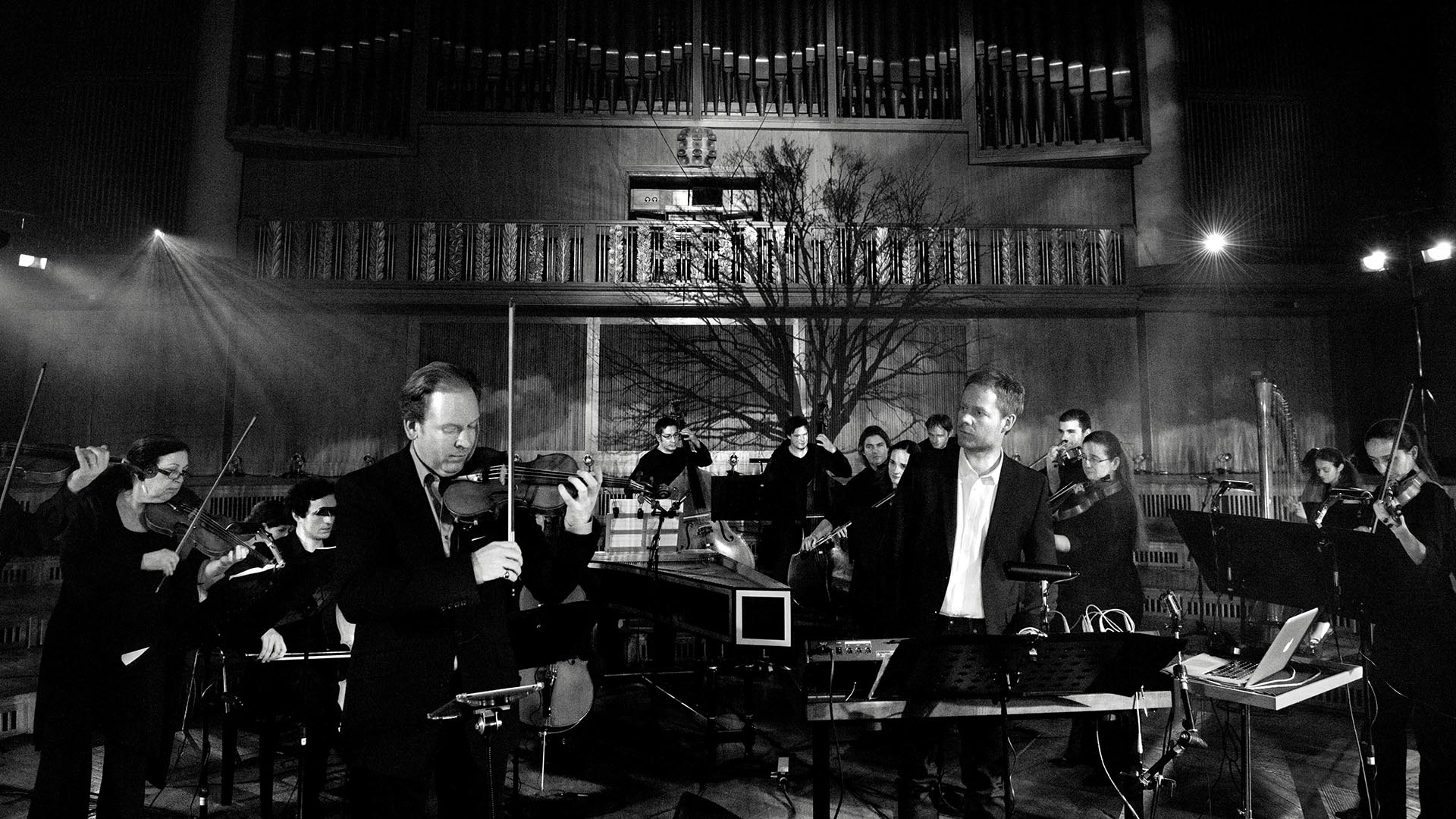‘That was without microphones?’ a friend asked in amazement during the interval of a recent concert, expressing incredulity that the singers were unamplified. It sometimes surprises people that opera, like most (but not all) classical music is performed acoustically. It’s one of several identifiable features and the reason why concert halls and opera houses are carefully designed to ensure acoustics are appropriate for the genre. Sitting in on a dress rehearsal can be illuminating: soloists will often perform at ‘half volume’ to save resources for the actual performance. Conductors and orchestras dedicate their lives to listening to balance and responding accordingly, taking into account the intricacies of the venue. So when an ensemble opts for electronic assistance, it’s often as a last resort.
When Aldeburgh Festival put on a production of Britten’s Peter Grimes on the real-life beach where the plot is based, the orchestra had to be pre-recorded in order to be heard above crashing seas and crunching pebbles. The singers, too, wore headsets, as did the soloists in ENO’s pandemic performances of La bohème, where singing was broadcast live through car radios. And at Latitude Festival, superstar pianist Lang Lang needed a little help from microphones to ensure those gathered at the banks of the floating stage could hear Liszt and Beethoven.
But using recorded music in concert halls to replace a live orchestra is a different matter. That’s what’s happening at Northern Ballet, where the Northern Ballet Sinfonia is being asked to record soundtracks. The 28-strong ensemble will give a reduced number of live performances, with gaps filled by their recordings.
At present, the orchestra is set to play for part of the tour of Romeo & Juliet (opening at Leeds Grand Theatre 8 March) with recorded music in the pipeline for later in the year. Listings for performances in Southampton, Canterbury and Newcastle sport a new circular icon with the advisory note ‘Recorded Music’.
- Why English National Opera relocating to Manchester will be more complicated than it looks
- English National Opera is in a fight for its life
The development has rung alarm bells across the industry, and a petition to Arts Council England and other bodies has attracted nearly 15,000 signatures. The Musicians’ Union warns: “Unlike other Northern Ballet workers, the [Sinfonia] musicians are on freelance contracts and only get paid for the work they do. Some of our members at Northern Ballet are already relying on food banks to survive.”
Of course, there can be valid artistic reasons for using electronics. Steve Reich’s tape pieces like Different Trains – where a string quartet plays alongside looped recordings – and Max Richter‘s Four Seasons Recomposed, electro-acoustic remixes of Vivaldi’s work, relies on collaboration and interplay between instrumentalist and pre-recorded sound. Anna Clyne is currently developing an ‘augmented’ orchestra, where real-time digital creations enhance the instrumentation. The critical difference is that the technology becomes part of the ensemble, rather than replacing it.









